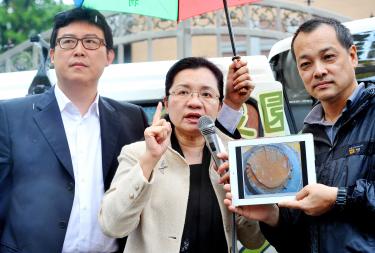The government yesterday published its first report on human rights based on the UN covenants that are now part of the nation’s legal system. President Ma Ying-jeou (馬英九) said the report marked another milestone in Taiwan’s efforts to meet international standards. Ironically, the report, both through its inclusions and omissions, highlights just how far this nation has to go — even as its place on the world stage grows ever smaller and international attention paid to it dwindles.
The health minister for the Tibetan government-in-exile in Dharamsala, India, visited Taiwan last week to discuss cooperation on health with his Taiwanese counterparts — including Department of Health (DOH) Minister Chiu Wen-ta (邱文達).
Contact between Taiwanese officials and Tibetan representatives is always a sensitive matter given Beijing’s hardline position on Tibet and government-to-government contacts by Taiwanese officials.












